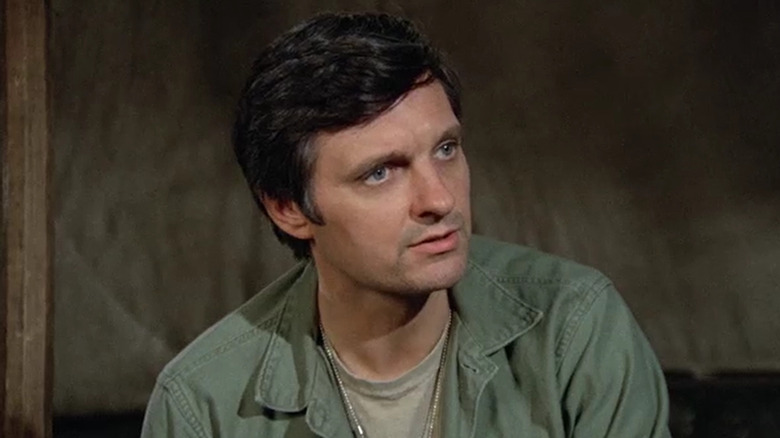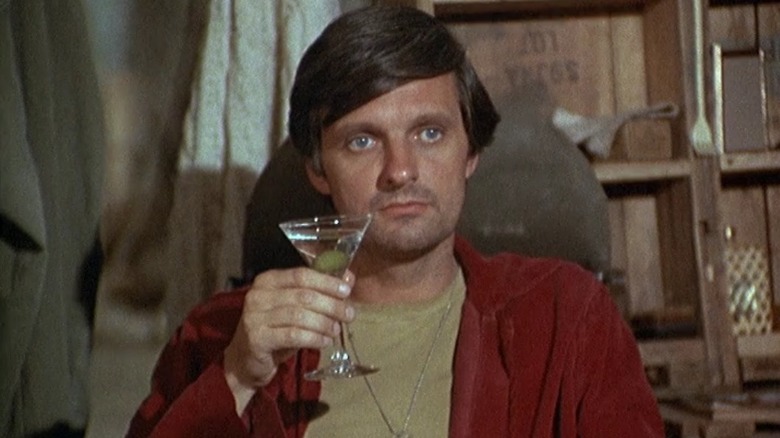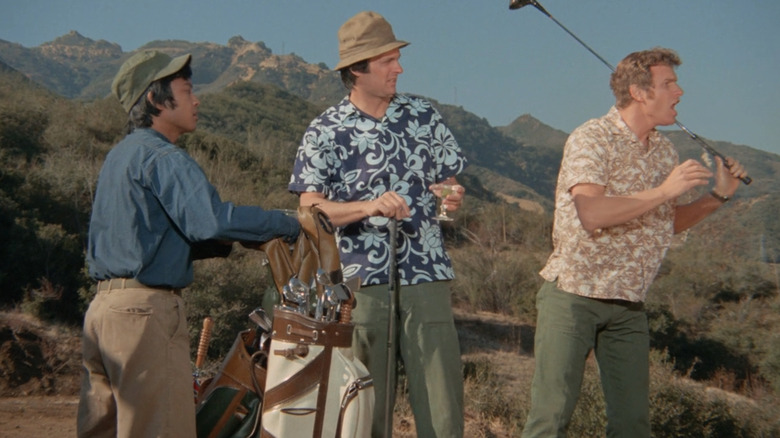The Never-Seen M*A*S*H Plotline Censors Thought Was Too Salacious For TV
The classic sitcom series "M*A*S*H" was groundbreaking in a number of ways. It still holds the record for most-watched finale, pulling in 106 million viewers for the two-hour finale "Goodbye, Farewell and Amen" in 1983. It helped create television dramedies, mixing the horrors of war with a whole lot of heartwarming humor. And perhaps most of all, it pushed the boundaries of what could be said and shown on television and helped promote some pretty progressive ideals. Unfortunately, behind-the-scenes there was a lot of fighting between series creator Larry Gelbart and the network censors, which might at least partially contributed to his leaving the series after the fourth season. (He also wanted more creative freedom and didn't want to let himself grow stagnant, so good on you, Gelbart!)
Most of the time, CBS just forced Gelbart and the other writers to make changes to the show's scripts in order to feel safe enough to air in primetime. Sometimes Gelbart fought back, and sometimes he just gave the network a tough time, but on at least two occasions, they gave episode ideas the axe completely. Audiences got 11 great seasons of "M*A*S*H" with some truly boundary-pushing episodes, but according to Gelbart, they were denied because CBS censors laid down the law.
The censors said 'no'
In the book "Watching M*A*S*H, Watching America: A Social History of the 1972-1983 Television Series" by James Henry Wittebols, Gelbart revealed that two episodes were stopped dead in their tracks before they even made it to filming.
One was inspired by research that the writers had done on the actual Korean War, and revolved around a true story where members of a Mobile Army Surgical Hospital (MASH) unit purposely stood out in the cold in an attempt to get very ill. If they got sick enough with something like pneumonia, they could potentially be sent home. CBS didn't have a problem with being anti-war, but it drew the line at being so directly anti-military.
The only episode that was rejected entirely on the basis of content would have followed womanizing Captain Hawkeye Pierce (Alan Alda) as he carried on affairs with two nurses at the same time. While Hawkeye was frequently hooking up with one nurse or another, he also never seemed to be in committed relationships with any of them. (In fact, he tended to break up with women the moment they caught feelings for him.) While having two dates at the same time is classic sitcom fodder, it was apparently a bit too much back in the early 1970s.
Another fight Gelbart lost
There was one other major argument with the network that Gelbart unfortunately lost. He hated the use of a laugh track on the show, feeling that it cheapened the series. The laugh track really does distract from the weightier elements of "M*A*S*H," and it's frustrating because there's really no need for it. Audiences would have known exactly when to laugh because the show was very, very funny, so there wasn't a need for any kind of cue. Unfortunately, executives frequently misunderstand the art they help produce, so it's no surprise that they thought people might need cues to laugh.
Thankfully, even with the overzealous censors and irritating laugh track, "M*A*S*H" is still one of the best television shows to have ever aired. It's smart, funny, heartbreaking, and full of incredible performances.


